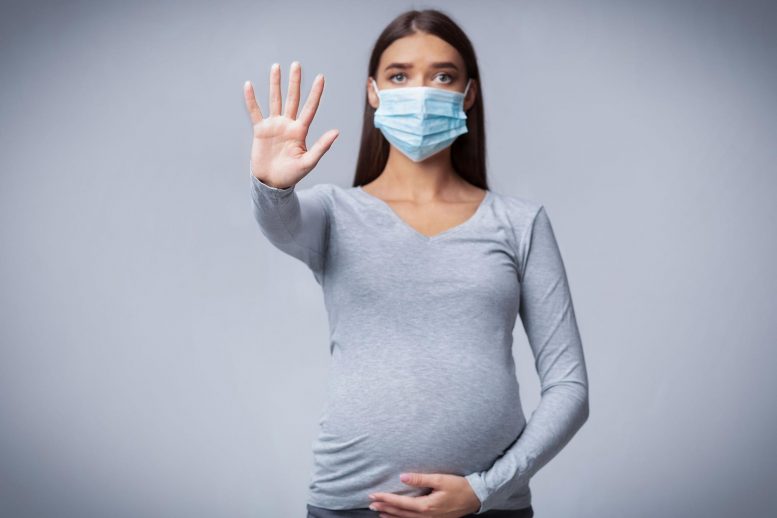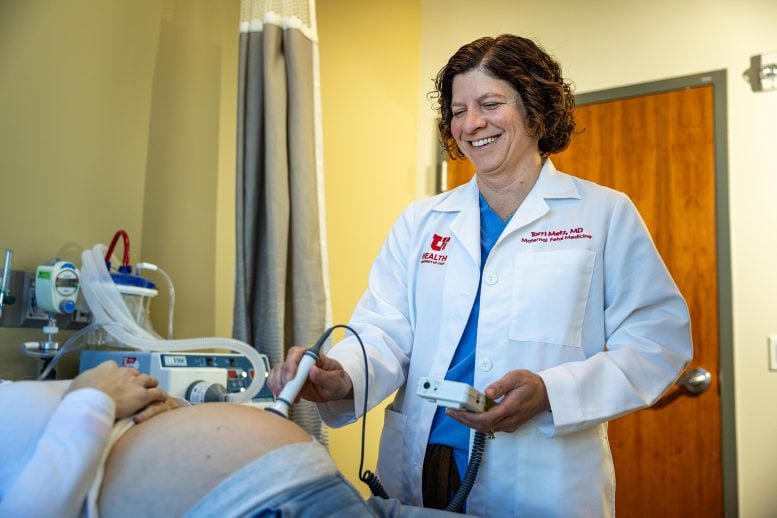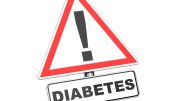
About 10% of those pregnant during COVID-19 may face long-term symptoms like fatigue, with risk factors including anxiety and obesity.
A study finds that about 10% of pregnant women contracting COVID-19 may develop long COVID, showing higher risks of long-term symptoms like fatigue and gastrointestinal issues.
Factors such as anxiety, obesity, and financial hardship were linked to increased risk, and health practitioners are urged to be vigilant about these symptoms to provide proper care.
Nearly one in 10 people who get COVID while pregnant will go on to develop long COVID, a report published today (July 11th) in Obstetrics & Gynecology has found.
Surprising Prevalence and Risks
“It was surprising to me that the prevalence was that high,” says Torri Metz, MD, vice chair of research of obstetrics and gynecology at University of Utah Health, who co-led the nationwide study. “This is something that does continue to affect otherwise reasonably healthy and young populations.”

Torri Metz, MD, co-lead author of the study, sees a pregnant patient. Credit: Charlie Ehlert / University of Utah Health
Prior research had shown that COVID affects pregnant people in uniquely risky ways. A COVID infection during pregnancy is more likely to lead to hospitalization or death, compared to an infection outside of pregnancy. COVID also increases the risk of pregnancy-related complications such as preterm birth or stillbirth. But until this study, the risk to pregnant people of developing long COVID was unknown.
Comprehensive Study Insights
The researchers enrolled more than 1500 people nationwide who had been sick with COVID for the first time while pregnant, and assessed self-reported long COVID symptoms at least six months after infection. As part of the National Institutes of Health RECOVER project, a massive nationwide collaboration to understand and treat long COVID, the large size of the study established solid associations and provided a picture of risk that was accurate for pregnant people across demographic groups.
The researchers found that 9.3% of people who contracted COVID during pregnancy went on to experience long-term symptoms. Some of the most common long COVID symptoms participants experienced were fatigue, gastrointestinal issues, and feeling drained or exhausted by routine activities.

Torri Metz, MD, vice chair of research of obstetrics and gynecology at University of Utah Health, who co-led the nationwide study. Credit: Charlie Ehlert / University of Utah Health
“This is a critical study as pregnancy and the post-partum period are one of the most vulnerable times in an individual’s life,” said David Goff, M.D., Ph.D., division director for the Division of Cardiovascular Sciences at the NIH’s National Heart, Lung, and Blood Institute. “By better understanding how individual characteristics interact with SARS-CoV-2 infection during pregnancy and lead to an increased risk of long COVID, this study yields important insights to potentially develop targeted interventions for this population.”
Research and Care Recommendations
Because the symptoms of long COVID can overlap with the symptoms of pregnancy itself, Metz says that it’s especially important for obstetricians to be vigilant for them. “I doubt most obstetric clinicians are as aware of long COVID as perhaps we should be,” Metz says. “But people are having these symptoms, and we need to make sure that we’re not forgetting that these could be long-term manifestations of their SARS-CoV-2 infection.”
To ensure that the reported long COVID symptoms weren’t symptoms of pregnancy, the researchers did a secondary analysis that was restricted to people who reported symptoms more than 12 weeks after giving birth. The estimated risk of long COVID remained similar, confirming the initial findings.
Metz says that while the rate of long COVID observed was surprisingly high, it could underestimate the actual risk of long COVID for pregnant people. On average, people reported whether or not they had symptoms of long COVID 10 months after their initial infection, which means that the study could have missed people whose symptoms resolved earlier.
Factors Influencing Long COVID Risks
Several factors were associated with an increased risk of long COVID. People with anxiety or depression prior to their infection, as well as people with obesity, were more likely to experience lasting symptoms. Self-reported financial hardship was also associated with higher rates of long COVID, although the study could not determine whether financial difficulties were a cause or a consequence of extended symptoms.
“Our results highlight that people who were pregnant when they got COVID may have significant long-term symptoms after pregnancy, like fatigue even after simple activities that they did before the infection,” says senior author Vanessa Jacoby, MD, MAS, director of the Clinical and Translational Science Institute at UCSF, and a professor of obstetrics, gynecology, and reproductive sciences as well as Associate Vice Chancellor for Clinical Research. “We encourage people to speak with their healthcare provider about persistent symptoms to connect with appropriate support and care,” she says.
Comparing Long COVID Risks Across Populations
Previous estimates of long COVID rates following infection in the general population range from 10% to over 20%, putting the researchers’ results on the lower end of the risk spectrum. Metz says that this could be because pregnant people’s immune systems tend to react less strongly to infection. This puts pregnant people at higher risk of severe symptoms during the infection, but may put them at lower risk of long-term organ damage that can lead to persistent symptoms. Pregnant people tend to be overall younger and healthier than other populations, which could also contribute to the difference.
Health Care Imperatives for Long COVID
But the high prevalence of long COVID, including in pregnant populations, emphasizes that health practitioners should keep an eye out for its symptoms, Metz says. “We need to have this on our radar as we’re seeing patients. It’s something we really don’t want to miss. And we want to get people referred to appropriate specialists who treat long COVID.”
U of U Health’s Long COVID Clinic specializes in caring for patients with prolonged symptoms of COVID-19. Learn more about the clinic here.
Reference: “Post–Acute Sequelae of Severe Acute Respiratory Syndrome Coronavirus 2 (SARS-CoV-2) After Infection During Pregnancy” Metz, Torri D. MD, MS; Reeder, Harrison T. PhD; Clifton, Rebecca G. PhD; Flaherman, Valerie MD, MPH; Aragon, Leyna V. MS; Baucom, Leah Castro MA; Beamon, Carmen J. MD, MPH; Braverman, Alexis MD; Brown, Jeanette MD, PhD; Cao, Tingyi MS; Chang, Ann BS; Costantine, Maged M. MD, MBA; Dionne, Jodie A. MD, MSPH; Gibson, Kelly S. MD; Gross, Rachel S. MD; Guerreros, Estefania BA; Habli, Mounira MD; Hadlock, Jennifer MD; Han, Jenny MD, MSc; Hess, Rachel MD, MS; Hillier, Leah MD; Hoffman, M. Camille MD, MSc; Hoffman, Matthew K. MD, MPH; Hughes, Brenna L. MD; Jia, Xiaolin MD; Kale, Minal MD; Katz, Stuart D. MD; Laleau, Victoria MS; Mallett, Gail BSN, MS; Mehari, Alem MD; Mendez-Figueroa, Hector MD; McComsey, Grace A. MD; Monteiro, Jonathan MS; Monzon, Vanessa BS; Okumura, Megumi J. MD, MAS; Pant, Deepti MPH; Pacheco, Luis D. MD; Palatnik, Anna MD; Palomares, Kristy T.S. MD, PhD; Parry, Samuel MD; Pettker, Christian M. MD; Plunkett, Beth A. MD; Poppas, Athena MD; Ramsey, Patrick MD, MSPH; Reddy, Uma M. MD, MPH; Rouse, Dwight J. MD, MSPH; Saade, George R. MD; Sandoval, Grecio J. PhD; Sciurba, Frank MD; Simhan, Hyagriv N. MD; Skupski, Daniel W. MD; Sowles, Amber RN, BSN; Thorp, John M. Jr MD; Tita, Alan T. N. MD, PhD; Wiegand, Samantha MD; Weiner, Steven J. MS; Yee, Lynn M. MD; Horwitz, Leora I. MD; Foulkes, Andrea S. ScD and Jacoby, Vanessa MD, MAS; on behalf of the NIH Researching COVID to Enhance Recovery (RECOVER) Consortium 11 July 2024, Obstetrics and Gynecology.
DOI: 10.1097/AOG.0000000000005670
The study was funded by the National Institutes of Health (NIH) Agreements OTA OT2HL161847, OT2HL161841, and OT2HL156812 as part of the Researching COVID to Enhance Recovery (RECOVER) Research Initiative.









Be the first to comment on "Pregnant with COVID? The Long-Term Risks You Need to Know"